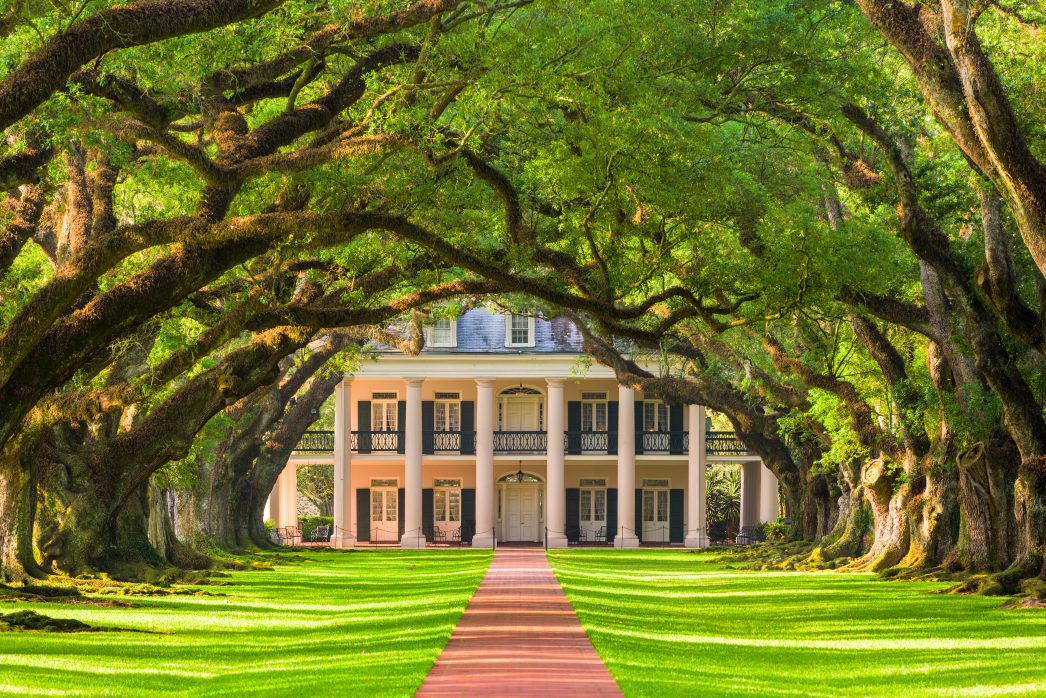Could slavery have ended in the United States without war?
Think on that.
When John Brown was hung for treason in 1860 for trying to take over the United States Armory and Arsenal at Harpers Ferry, the typical slave owner in the south owned between four and six slaves.
A “planter” was a separate distinction used in the U.S. census to distinguish between slave owners. To be a planter you had to own at least 20 slaves.
Only 1 out of 8 slave owners were planters. But even among this group, not all planters were created equal.
The upper echelon of the planter aristocracy accounted for about 10,000 families, or less than 1/4th of all planters.
To be in this “special” group you had to own 50 or more slaves. This is the group that “gave shape to the government and set the tone to how slavery was discussed in the United States.”
1/15th of these planters enjoyed wealth that put to shame even those who set the tone to how slavery was discussed in the U.S. These 3,000 families owned at least 100 slaves each.
Jefferson Davis, the first president of the Confederacy, was one of them. He owned an 1,800 acre plantation and all 113 slaves that worked it.
Rev. Charles Colcock Jones, the reverend who quite literally wrote the book about what and HOW to teach slaves about Christianity, owned 129 slaves on three different plantations.
And then there was Robert Toombs, the Confederacy’s first Secretary of State. He owned 176 slaves and 2,200 acres of land in 3 counties.
But there were planters that were even wealthier still.
There were 300 planters in the United States that owned at least 250 slaves.
Among them was a former governor of Georgia, a member of the U.S. House of Representatives and a United States secretary of the Treasury.
And at the tiptop of the planter pyramid were the fifty planters that owned at least 500 slaves, and some of these men owned considerably more than 500. Among those who owned considerably more was a man named Thomas P. Devereux, he owned more than 1,000 slaves, and Georgia’s James Hamilton Couper owned 1,500 enslaved Africans.
As a group, these 46,000 “planters” owned more than half of the 4 million of the slaves in the South and controlled an even larger share of its wealth.
Clearly, the ownership of even one slave made you a wealthy member of the community. But those who owned over 500 slaves had a measure of economic power that compares to billionaires today.
Again, I ask you, do you think these men would give all of that up without war?
Those Americans who argued first and most vigilantly that the best form of government is both small and weak were those who represented the interests of the aristocracy of the Antebellum South.
Considering the time, before the age of political correctness and the 30 second sound bite, these men were among the wealthiest in the world and saw no reason to disguise their motivations. Their interest in keeping government as weak as possible was so it could not interfere with their economic prerogatives, particularly concerning their enslaved African property, which was not only the source of their wealth, but also what they saw as their natural right to impose their will upon.
Please consider Thomas Jefferson’s perspective on the subject…
“Masters,” Jefferson acknowledged in 1787, exercise the most “unremitting despotism” over their slaves that give them free rein to “the most boisterous passions”. “When we dominate and abuse our slaves our children see this,” Jefferson added, “and they cannot but be stamped by it. They are nursed, educated, and daily exercised in tyranny.”
Think about that the next time you hear someone arguing that society is best served by small, weak government or that laissez-faire Capitalism somehow equates to freedom and liberty. Remember the roots of this line of thinking and why it was advocated. In principle, it’s no different than when a criminal tries to convince you that it’s some kind of virtue to not to alert the authorities to what they are doing. There is a reason why they want to operate with impunity. And it’s probably not because they want to spread the wealth, freedom and liberty…that is, unless they are talking only about themselves.
As far as I can tell there are two lessons to be learned from John Brown’s Raid of Harpers Ferry.
John Brown had a few serious flaws in his “plan”, if you want to call it that. None bigger than the assumption he made that as soon as word got out to the slaves in the area 200-500 of them would just drop what they were doing and run to arm themselves for freedom.
That piece was key to everything, yet, when the time came, no slaves came.
Fredrick Douglass described John Brown as, “Though a white gentleman, he is in sympathy, a black man, and as deeply interested in our cause, as though his own soul had been pierced with the iron of slavery.”
While John Brown was overflowing with sympathy for enslaved Africans, the fault in his plan was that he didn’t try to see the world from the perceptive of a slave. He saw the condition of the slave from the perspective of a free white man.
It’s like the person who asks the battered woman, “if you don’t like him hitting you why don’t you just leave?”
Our experiences shape us. They change us like clay being reshaped on a potter’s wheel.
We don’t get to start over every morning anew.
That clay is going to remain in whatever shape the potter left it in, until or unless he works on it again.
In this way, we are a lot like silly putty. Experiences leave their impressions on us and if we want to be smooth and oval again, as we were when we were first removed from our package, it takes hard work to deal with all of the fingerprints and bits of ink from the Sunday comics that are all over us.
And slavery didn’t just leave an impression on slaves. It also left as deep of an impression on those who owned slaves and those who never owned slaves but were taught nevertheless to believe in the tenants of White Supremacy that underlined the whole institution of slavery.
In 1860, very few whites in America considered blacks to be their equals in any way. How they felt about slavery, whether they supported slavery or not, made no difference.
With all of the sympathy John Brown had for enslaved Africans, for all of the stories that he heard from the fugitive slaves that he fed and clothed in his home, the reason he believed 200-500 or even a dozen would rush to join his side was because he never tried to THINK like one.
John Brown assumed that slaves would run to him because he imagined that HE would run to him had he been a slave and he had heard someone was handing out rifles. But this was how a FREE man without the experience of being a slave THINKS he will react if he were a slave.
There is a difference.
A huge difference.
And for John Brown it ended up being one that cost him his life and the lives of two of his sons.
But there was one thing that John Brown was right about, one thing that he recognized at the age of twelve when he saw those men beating a slave child with iron shovels. And that was that it would take bloodshed to end slavery in America.
Ask yourself, is there any scenario where slave owners would’ve willingly given up their slaves without bloodshed?
Was there anything anyone could’ve said to Jefferson Davis to get him to understand that slavery was wrong? Could someone have sat down with Joseph Goebbels and gotten him to see that his “Final Solution” to rid Europe of Jews was unacceptable?
Do you believe that Abubakar Shekau, the current leader of Boko Haram, can be talked into rejecting his belief that it is totally acceptable to slaughter villages of infidels by having a face to face sit down with Malala Yousafzai?
And I don’t think stopping men like this places you in the same box as them.
Many abolitionists were tirelessly preaching about the evils of slavery. It’s not like everyone was silent on this issue.
On July 4, 1854, William Lloyd Garrison publicly burned a copy of the Constitution, condemning it as “a Covenant with Death, an Agreement with Hell,” referring to the compromise written right into the US Constitution permitting slavery.
Do you think for one second that the words out of William Lloyd Garrison’s mouth gave Jefferson Davis, Thomas P. Devereux or James Hamilton Couper a reason to reconsider their position on chattel slavery?
Talk never changes men like Jefferson Davis, Joseph Goebbels, Abubakar Shekau, Abu Bakr al-Baghdadi.
Never.
These men only understand one thing, swift, harsh and permanent consequence.
What John Brown realized before everyone else is that sometimes war is necessary.
“I John Brown am now quite certain that the crimes of this guilty, land: will never be purged away; but with Blood.”
That is the legacy of John Brown.

